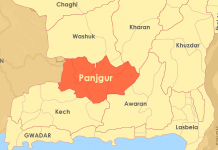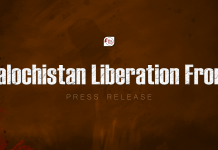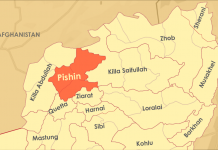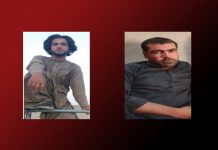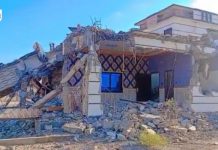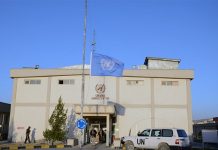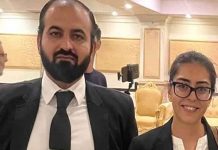Author: Zameen Zaag
In the arduous journey toward freedom, equality, and national survival, we have sacrificed the most beautiful and closest among us. These sacrifices make this war against injustice and colonialism beloved to us, as intense and unconditional as a mother’s love for her child. The names of those who have given their lives for this cause are so sacred that they transcend words, beyond the capacity of pen or historian to capture their essence. Their valor and struggles defy documentation, and whatever we attempt to write falls short, unable to reflect even a fraction of their incredible journey and sacrifices.
In a land rich with stories yet to be told, where the echoes of struggle resonate in every mountain and plain, one tale near me shines brighter—a tale of a father, his two sons, their shared destiny, and their unparalleled sacrifices for the survival of the Baloch nation. It is a story that demands to be told, a story of devotion, resilience, and the ultimate price paid for freedom.
War is never easy; it tears apart the fabric of life and leaves a trail of devastation. It brings death, destruction, and a haunting silence as mothers lose their children, children their fathers, and sisters their brothers. Though war is a curse, history reminds us that freedom is achieved not by mere slogans but through sacrifices. The peace born from the ashes of war is forged through unrelenting struggle and bloodshed.
In the heart of Balochistan lies Bolan, a place that Baloch people regard as sacred, akin to a mother’s embrace. Bolan’s towering mountains, majestic and unyielding, have served as natural forts for the Baloch, guardians of their survival through centuries. Among these mountains, in a small settlement called Charbok Sangaval near Sangaan, lived the Sumalani tribe, a people deeply connected to their land. Generations of shepherds and warriors thrived there until the war reached their homes, forcing them to abandon their peaceful existence.
Meshdar Sumalani, a shepherd of great dignity, lived with his two sons, Ghaus Baksh Baloch and Mohammad Baksh Baloch. They were simple people, bound to their land and livestock, until the horrors of war arrived. Pakistani military operations tore through their village, killing shepherds, abducting women and children, and looting their livelihood. Though Meshdar’s family escaped immediate harm, their livestock—their only source of income—was stolen, plunging them into hardship.
Displaced and heartbroken, Meshdar and his sons relocated to the mountains of Sibi. But peace eluded them. One day, while Ghaus Baksh was transporting goods for sale, Pakistani forces intercepted and looted him. This moment became a turning point for Ghaus Baksh, who realized that under occupation, even dreams were forbidden. He vowed that if the oppressor denied them peace, they would deny the oppressor rest.
With his deep knowledge of the mountains and a burning desire for justice, Ghaus Baksh joined the Baloch Liberation Army (BLA), the national resistance force. His skills, discipline, and courage earned him a position of responsibility within the BLA in Bolan. Inspired by his resolve, his father Meshdar and younger brother Mohammad Baksh also joined the ranks, each determined to contribute to their people’s fight for survival.
Despite his old age, Meshdar insisted on participating in battles. Known for his wisdom and quiet strength, he often moved his comrades with his heartfelt words. He longed to fight on the front lines, a dream that was finally fulfilled when he faced the enemy in Coman, Bolan. In his last battle, Meshdar fought bravely alongside two comrades, refusing to surrender even as they ran out of bullets, choosing martyrdom over capture.
Mohammad Baksh, affectionately called “Bunjanlo” by his comrades, was initially deemed too young for combat. Yet his determination and courage proved otherwise. During one mission, he confronted his commander, arguing that if he was considered capable of performing camp duties, he was equally capable of fighting. Relenting, the commander allowed him to join the operation. Mohammad Baksh’s bravery on the battlefield earned him respect among his comrades.
The two brothers, Ghaus Baksh and Mohammad Baksh, were inseparable in their commitment to the cause. They participated in several key operations, including capturing military installations and disrupting supply lines. Their courage and resolve became a symbol of hope for the Baloch resistance.
The brothers volunteered for the Majeed Brigade, the BLA’s elite unit known for self-sacrificial missions. Together, they requested to participate in a mission that would etch their names into history. During Operation Dara-e-Bolan, one of the largest operations in Balochistan’s resistance history, Ghaus Baksh commanded a frontline unit. The operation saw BLA fighters take control of Machh (Bolan) city, a bold and unprecedented move.
Unfortunately, Mohammad Baksh embraced martyrdom during the Operation Herof mission’s preparation, falling in a clash with Pakistani forces in Mastung days before the operation. Despite this, Ghaus Baksh pressed on, leading his unit with unwavering determination. Wounded during the operation, he continued to fight until his last breath, embodying the spirit of resistance.
The sacrifices of martyrs like Meshdar and his sons, Ghaus Baksh and Mohammad Baksh are the lifeblood of the Baloch nation. Their courage and selflessness inspire generations to stand against oppression and strive for freedom. Their deaths are not an end but a beginning—a testament to the resilience and indomitable spirit of a people who refuse to bow to tyranny.
In the mountains of Bolan, their legacy lives on. Their story is one of pain and beauty, of a love so deep that it transcends life itself. Their sacrifices remind us that freedom is never free; it is earned through the blood and tears of those who dare to dream of a better world.
Disclaimer: The views and opinions expressed in this article are those of the author and do not necessarily reflect the official policy or position of The Balochistan Post or any of its editors.











